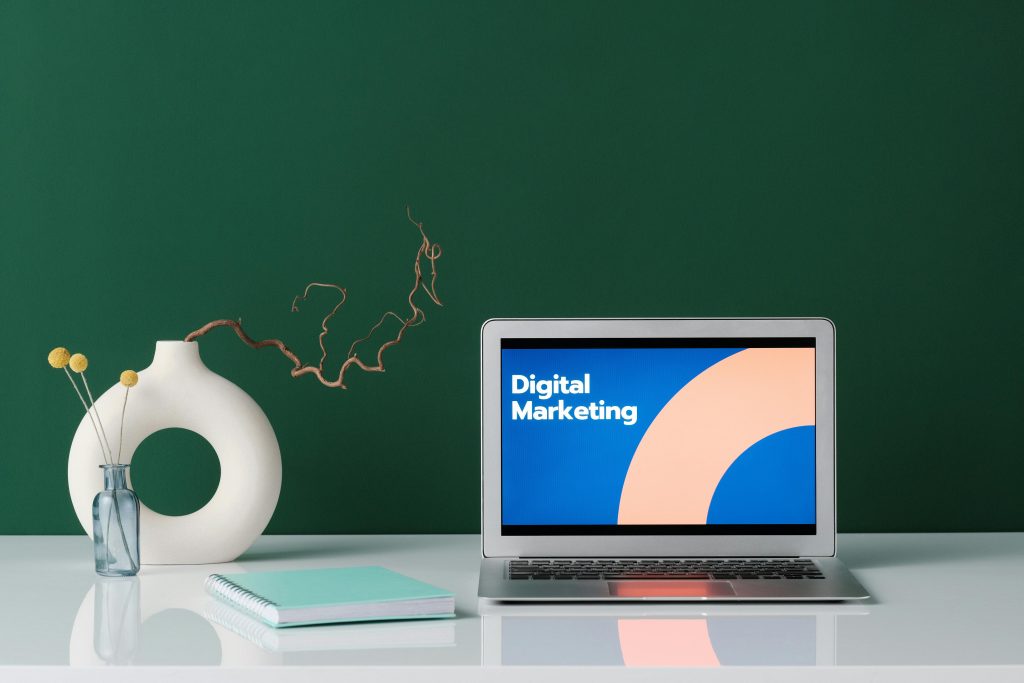Table of Contents
Digital marketing has revolutionized the way businesses connect with their audiences, transforming traditional marketing approaches and opening up new avenues for engagement and growth. In the digital age, where consumers spend significant time online, leveraging digital marketing strategies is essential for any business aiming to stay competitive and relevant. This article explores the key components of digital marketing, its benefits, and how it is reshaping the business landscape.

Understanding Digital Marketing
Digital marketing encompasses all marketing efforts that use an electronic device or the internet. Businesses leverage digital channels such as search engines, social media, email, and websites to connect with current and prospective customers. The primary goal of digital marketing is to increase brand awareness, drive traffic, generate leads, and ultimately, boost sales.
1. Search Engine Optimization (SEO):
- SEO involves optimizing a website to rank higher in search engine results pages (SERPs). By improving site structure, content, and keyword usage, businesses can increase their visibility and attract more organic traffic from search engines like Google and Bing.
2. Content Marketing:
- Content marketing focuses on creating and distributing valuable, relevant content to attract and engage a target audience. This can include blog posts, videos, infographics, and ebooks. Effective content marketing builds brand authority, fosters trust, and drives customer action.
3. Social Media Marketing:
- Social media platforms like Facebook, Twitter, LinkedIn, and Instagram are powerful tools for reaching and engaging with audiences. Businesses use social media marketing to promote their brand, share content, and interact with customers in real-time, creating a more personalized connection.
4. Pay-Per-Click (PPC) Advertising:
- PPC advertising involves paying a fee each time an ad is clicked. Google Ads is a popular PPC platform where businesses bid on keywords to display their ads in search results. PPC provides immediate visibility and can be highly targeted, ensuring that ads reach the right audience.
5. Email Marketing:
- Email marketing is a direct channel for communicating with customers and prospects. Businesses use email campaigns to share news, promotions, and personalized content, nurturing relationships and encouraging repeat business.
6. Influencer Marketing:
- Influencer marketing leverages individuals with a large following and influence on social media to promote products or services. Collaborating with influencers can enhance brand credibility and reach a broader audience.

Benefits of Digital Marketing
Digital marketing offers numerous advantages over traditional marketing methods, making it an indispensable component of modern business strategies.
1. Cost-Effectiveness:
- Digital marketing is often more cost-effective than traditional marketing channels like TV, radio, or print. Businesses can reach a larger audience with a smaller budget and achieve a higher return on investment (ROI).
2. Measurable Results:
- One of the most significant benefits of digital marketing is the ability to measure results in real-time. Tools like Google Analytics and social media analytics provide insights into campaign performance, helping businesses understand what works and what doesn’t.
3. Targeted Reach:
- Digital marketing allows for precise targeting based on demographics, interests, and behaviors. This ensures that marketing efforts reach the most relevant audience, increasing the likelihood of conversion.
4. Increased Engagement:
- Digital channels facilitate two-way communication between businesses and customers. Social media, in particular, allows for direct interaction, fostering a sense of community and loyalty among customers.
5. Global Reach:
- With digital marketing, businesses can reach a global audience without geographical limitations. This opens up opportunities for expansion and growth in international markets.
Transforming the Business Landscape
The rise of digital marketing has had a profound impact on the business landscape, influencing how companies operate and compete.
1. E-Commerce Growth:
- The integration of digital marketing with e-commerce has fueled the growth of online shopping. Businesses can now reach consumers directly, offering personalized shopping experiences and driving online sales.
2. Data-Driven Decision Making:
- Digital marketing provides access to vast amounts of data, enabling businesses to make informed decisions. Analytics and data-driven insights help optimize marketing strategies, improve customer experiences, and increase overall efficiency.
3. Enhanced Customer Experience:
- Personalization is a key trend in digital marketing. By leveraging data and technology, businesses can deliver tailored content and experiences, meeting customers’ specific needs and preferences.
4. Competitive Advantage:
- Businesses that effectively utilize digital marketing gain a competitive edge. They can quickly adapt to market changes, launch innovative campaigns, and respond to customer feedback, staying ahead of competitors.

Conclusion
In the digital age, digital marketing is no longer an option but a necessity for businesses aiming to thrive. Its cost-effectiveness, measurable results, targeted reach, and ability to engage with customers make it a powerful tool for growth. As technology continues to evolve, so will digital marketing strategies, providing businesses with new opportunities to connect with their audiences and achieve their goals. Embracing digital marketing is essential for any business looking to stay competitive and succeed in today’s dynamic and interconnected world.